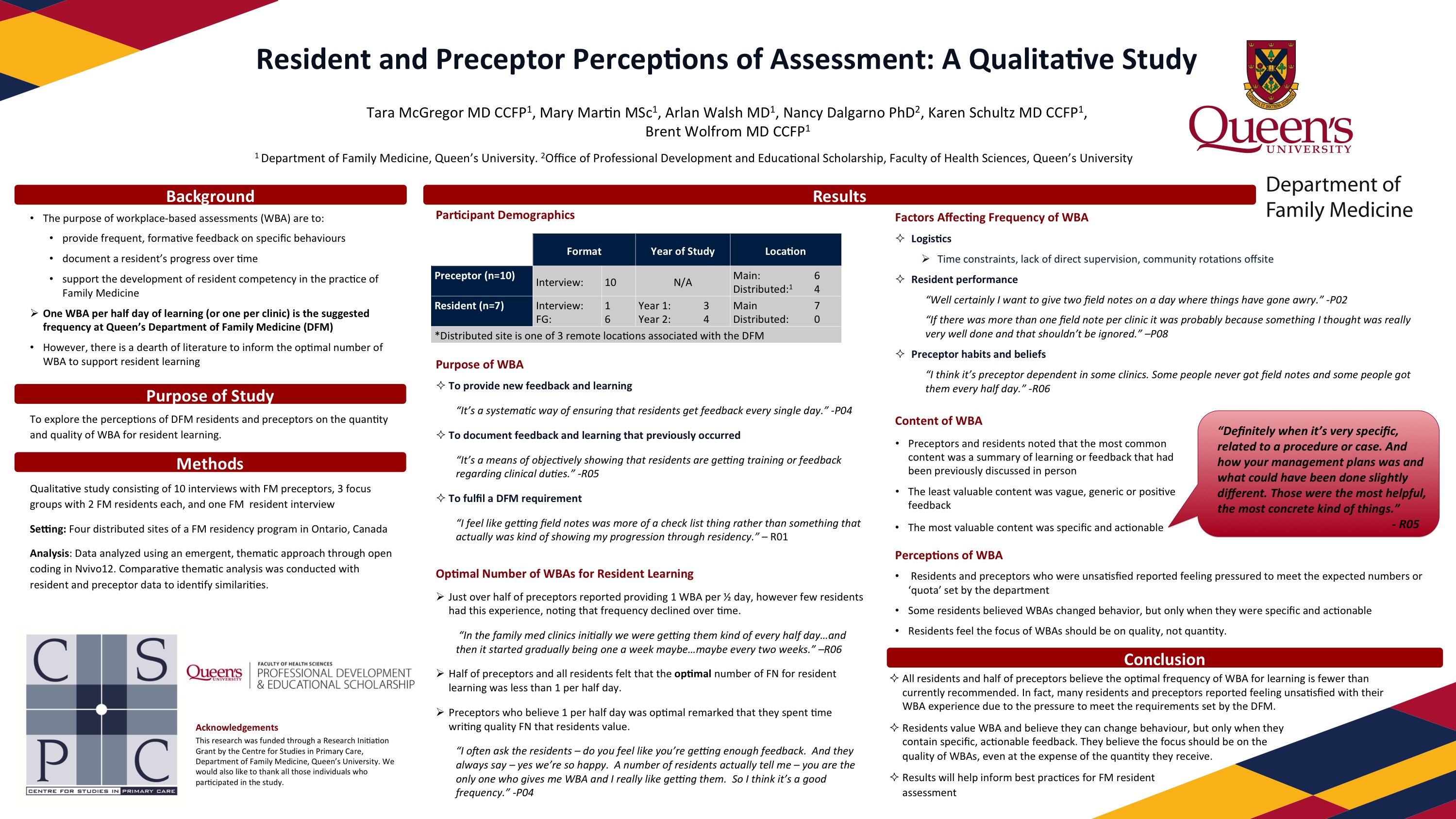PRP074: Resident and Preceptor Perceptions of Assessment: A Qualitative Study
Mary Martin, MSc; Nancy Dalgarno; Tara McGregor, MD, CCFP, MSc; Brent Wolfrom, MD
Abstract
Context: Workplace-based assessments (WBA) are used to document formative feedback and to inform summative assessment for residents. Though one WBA per half day of learning is suggested, there is a dearth of literature to inform the optimum number of FNs to support resident’s learning. Objective: Explore perceptions of Family Medicine (FM) residents and preceptors on the quantity and quality of workplace-based assessment (WBA) for resident learning. Study design: Qualitative study consisting of interviews with FM preceptors and focus groups with FM residents. Data analyzed using thematic analysis through open coding in NVivo. Setting: Four distributed sites of a Family Medicine residency program in Eastern Ontario. Population Studied: Enrolled FM residents (n=163) and active FM preceptors (n=173). Outcome Measures: Number of WBA written (preceptors) and received (residents), satisfaction with quantity and quality of WBA, optimal number of WBA for learning, differences between residents and preceptors and between residents by year of study. Results: Analysis is ongoing. Ten preceptors participated in interviews and 7 residents participated in a focus group or interview (3 focus groups with 2 residents each, and 1 one-on-one interview). Six preceptors and all 7 residents practiced at the largest teaching site (in an urban center), while 4 preceptors were distributed throughout the remaining smaller, rural teaching sites. Three residents were in their first year of training at the time of the interview, while 4 were in year 2. Preliminary results suggest that some preceptors agree with the suggested one WBA per half day as optimal for resident learning, while some felt this was too frequent. Similarly, about half the residents felt 1 WBA per half day was too frequent, while 3 felt this was optimal in their first year, but agreed the optimal frequency was fewer in their second year. For preceptors, many factors, including reception by the resident, year of study, and time constraints contributed to reduced frequency of writing WBA. Conclusions: Results of this study will inform best practice for resident assessment and help to determine the optimal frequency of workplace-based assessment in FM residency programs.

Diane Harper
harperdi@med.umich.edu 11/21/2021This is important for burnout evaluation as well. thank you for sharing it with NAPCRG.